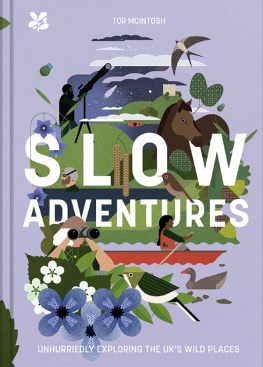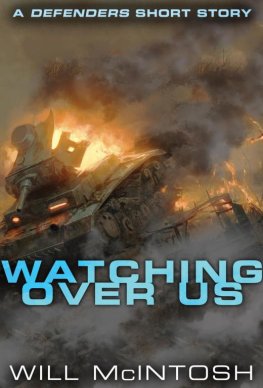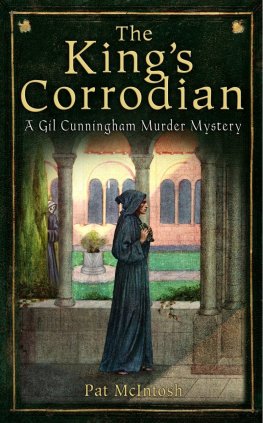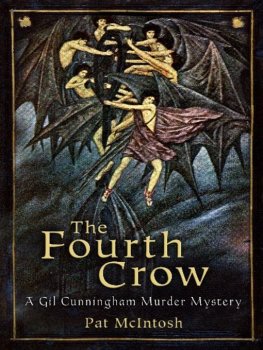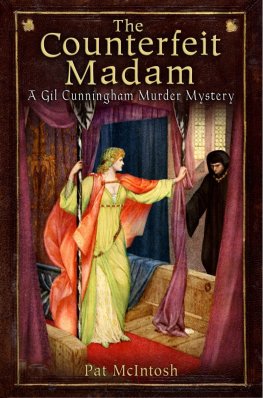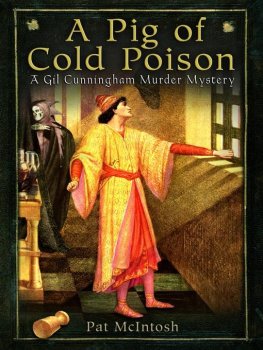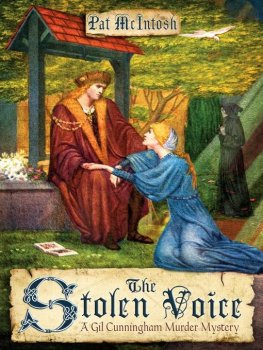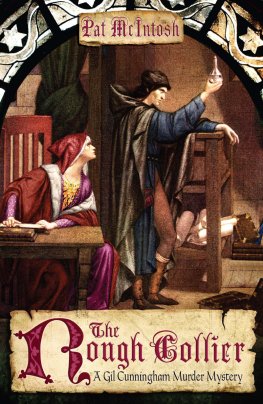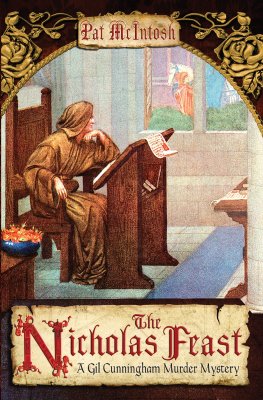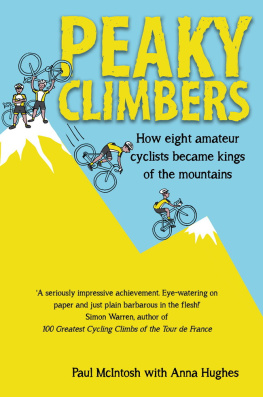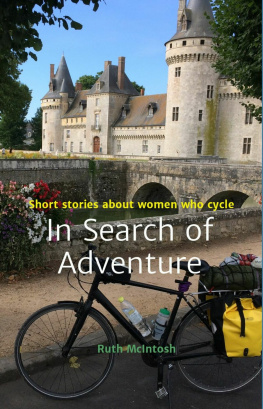Tor McIntosh - Slow Adventures
Here you can read online Tor McIntosh - Slow Adventures full text of the book (entire story) in english for free. Download pdf and epub, get meaning, cover and reviews about this ebook. publisher: National Trust, genre: Home and family. Description of the work, (preface) as well as reviews are available. Best literature library LitArk.com created for fans of good reading and offers a wide selection of genres:
Romance novel
Science fiction
Adventure
Detective
Science
History
Home and family
Prose
Art
Politics
Computer
Non-fiction
Religion
Business
Children
Humor
Choose a favorite category and find really read worthwhile books. Enjoy immersion in the world of imagination, feel the emotions of the characters or learn something new for yourself, make an fascinating discovery.
- Book:Slow Adventures
- Author:
- Publisher:National Trust
- Genre:
- Rating:3 / 5
- Favourites:Add to favourites
- Your mark:
- 60
- 1
- 2
- 3
- 4
- 5
Slow Adventures: summary, description and annotation
We offer to read an annotation, description, summary or preface (depends on what the author of the book "Slow Adventures" wrote himself). If you haven't found the necessary information about the book — write in the comments, we will try to find it.
Slow Adventures — read online for free the complete book (whole text) full work
Below is the text of the book, divided by pages. System saving the place of the last page read, allows you to conveniently read the book "Slow Adventures" online for free, without having to search again every time where you left off. Put a bookmark, and you can go to the page where you finished reading at any time.
Font size:
Interval:
Bookmark:




For much of my life slowness has not been my default setting. As a child and into my teen years I was highly active and energetic, always dashing from one sporting hobby to the next. While during early adulthood I was swept along in the frenetic pace of living and working in urban environments, somehow squeezing a busy job, constant socialising and obsessive triathlon training into my waking hours. Slowing down just wasnt an option. In truth, its taken time and perhaps maturity to take onboard the sage advice from Zen Master Thich Nhat Hanh to smile, breathe and go slowly.
I began to embrace the idea of taking my time to explore the outdoors on my first multi-day hiking adventure in the Alps, following the Tour du Mont Blanc (TMB) long-distance trek, a 105-mile route circumnavigating Mont Blanc. My partner and I took 11 leisurely days to complete the circuit that saw us journey through France, Italy and Switzerland. Yet during our time on the trail we met runners completing the same long-distance route in hours rather than days while training for the annual Ultra-Trail du Mont-Blanc (UTMB) ultramarathon. Content with our steady walking pace I wasnt interested in emulating their speedy circumnavigation, but I was in awe of these wiry endurance athletes and understood the thrill of testing your body to its limit to get fitter and faster.
For much of my twenties, weekends were spent clocking up miles on my bike, training with fellow Lycra-clad triathletes. Looking back I remember so little about the landscape, the places and the nature that I passed on those high-tempo group rides engulfed, as I was, in a speeding peloton, my eyes fixed on either the wheel in front of me or the all-important stats on my bike computer. I missed so much in the pursuit of fitness goals, and that I regret. But as my partner and I trekked at a slow, immersive pace through the Alps day after day, I felt a strong sense of connection with the nature-rich mountainous landscape. We stopped for long, leisurely lunches overlooking breathtaking valleys, regularly paused to admire the array of wildflowers blanketing the alpine grassland, and spotted wildlife such as marmots, chamois and bearded vultures. By the time we reached the end of the trail filthy, exhausted, but overwhelmingly happy from our days spent being and journeying outdoors I had inadvertently embarked on my first slow adventure.

Returning home after my experience on the TMB I started to change the way I approached my outdoor adventures, both on two feet and two wheels. I was no longer fixated on how far or how fast I walked or cycled; instead my escapades were about exploring and observing, as well as reflecting, reconnecting and simply being close to nature. In fact, one of the joys I soon discovered from travelling slowly by bicycle was the opportunity it provided for close encounters with wildlife. From the comfort of my saddle Ive passed buzzards perched on fence posts my view of their majestic stature enhanced from seeing them so close compared to soaring overhead in the sky who have watched me warily, our eyes connecting for a matter of seconds. A particularly memorable moment was cycling behind a hare as it lolloped along a country lane, seemingly oblivious to my presence a few metres behind as my tyres rolled silently along the tarmac, before it disappeared into a field of uncut barley.
However, it wasnt until I read Nordic Slow Adventure: Explorations in Time and Nature by Peter Varley and Tristan Semple (2015), in which they investigate what they describe as the potentially paradoxical concept of slow adventure, that I discovered there was a term for this slower way I was adventuring. Varley and Semple explain that adventure, especially in the adventure tourism industry, has for many years been synonymous with adrenaline-fuelled outdoor sports. Yet, as the pace of our modern lives has accelerated, namely with digital technologies ensuring constant connection and high-tech processes centred on convenience and efficiency, there has been a desire to slow down in order to focus on quality and meaning in our lives.
Over the past few decades theres been an emergence of global slowness movements, such as slow food, slow travel, slow cities, and now slow adventure, with each of these counter-cultural movements characterised, according to Varley and Semple, by heritage, time, tradition and authenticity. As Carl Honor, author of In Praise of Slow (2004) wrote: [The Slow movement] is a cultural revolution against the notion that faster is always better. The Slow philosophy is not about doing everything at a snails pace. Its about seeking to do everything at the right speed. Savouring the hours and minutes rather than just counting them. Doing everything as well as possible, instead of as fast as possible. Its about quality over quantity in everything from work to food to parenting.


The notion of slow adventure is aligned with another concept thats seeped into the way Ive approached spending time outdoors in recent years the Nordic idea of friluftsliv, which translates to free air life. As Varley and Semple write: The basic philosophy [of friluftsliv] is about simple, basic outdoor life, living comfortably in and with nature: staring at the flames in a fire, or listening to the waves crashing on a beach. Just being, outdoors. The word was coined in the 1850s by Norwegian playwright and poet Henrik Ibsen, who used the term to describe the value of spending time in remote locations for spiritual and physical well-being. The simple pleasure and restorative value of being outdoors in wild, natural places and gently coexisting with nature key elements of the slow adventure ethos mirrors the essence of friluftsliv philosophy that has been practised for generations by Nordic people.
The belief that spending meaningful time being, living and journeying outdoors can positively refocus your mind and boost your well-being is what lies at the heart of this book, while the core ingredients of slow adventure experiencing the outdoors at a slower pace and connecting with nature-rich places inspired each of the activities that make up the 36 chapters of this book. There are no set rules as to what is classed as a slow adventure. In fact, what Ive shared with you in the following pages is just a selection of activities that allow you to engage deeply with the outdoors.
The basis for each of the slow adventures is an immersive experience in a wild place that often, but not always, encompasses a human- or nature-powered journey and focuses on slow-paced activities that allow you to invest time in a place by either engaging with its traditions and culture, or connecting with its environment. I had a thoroughly enjoyable time compiling these 36 slow adventures, which are geographically spread throughout Britain. Of course, I also had a wonderful time undertaking each of them; it gave me an amazing opportunity to travel through many of Britains wild places often alone, but whenever possible with loved ones while undertaking various bucket-list activities and experiences.
Font size:
Interval:
Bookmark:
Similar books «Slow Adventures»
Look at similar books to Slow Adventures. We have selected literature similar in name and meaning in the hope of providing readers with more options to find new, interesting, not yet read works.
Discussion, reviews of the book Slow Adventures and just readers' own opinions. Leave your comments, write what you think about the work, its meaning or the main characters. Specify what exactly you liked and what you didn't like, and why you think so.

